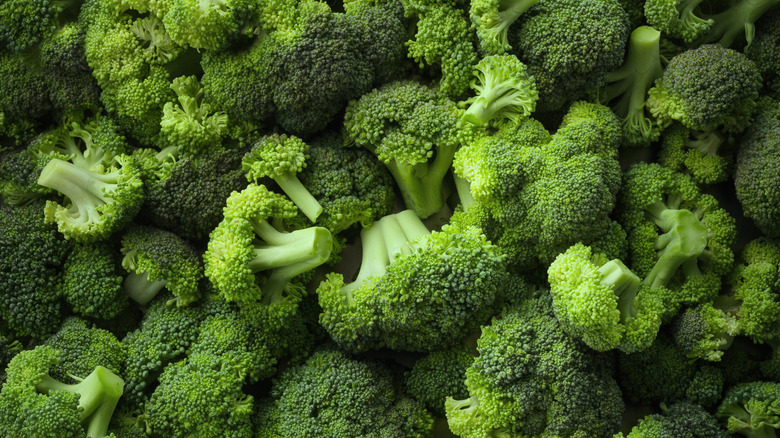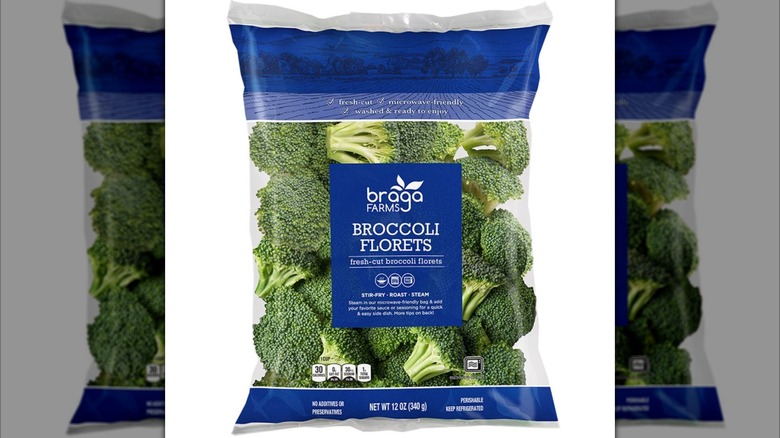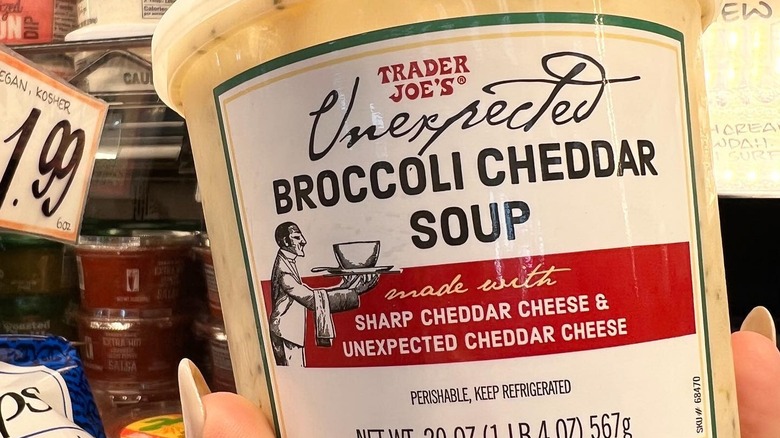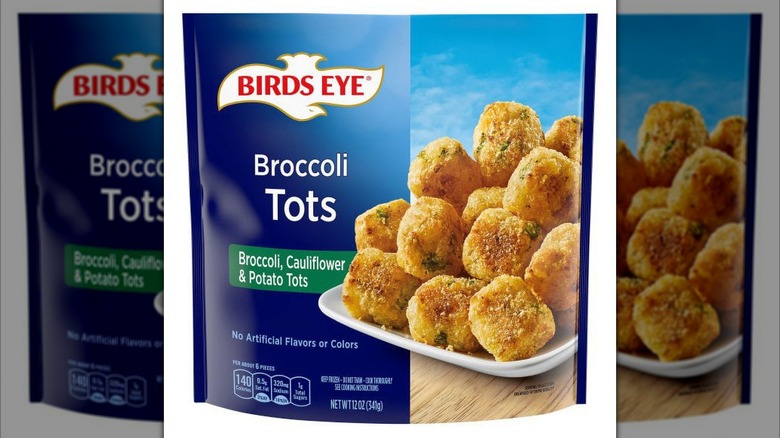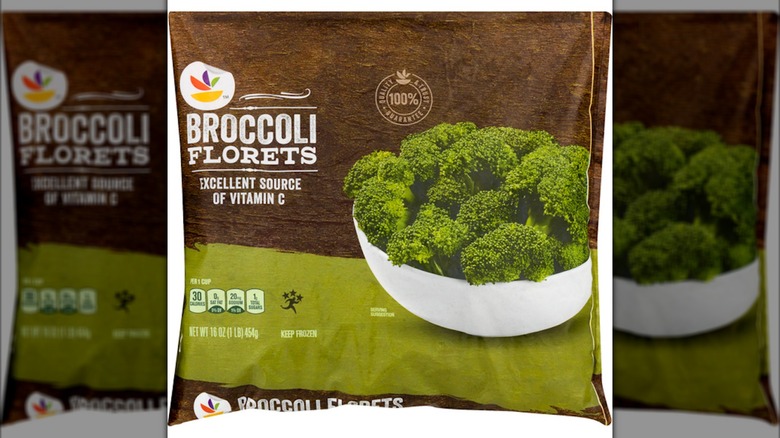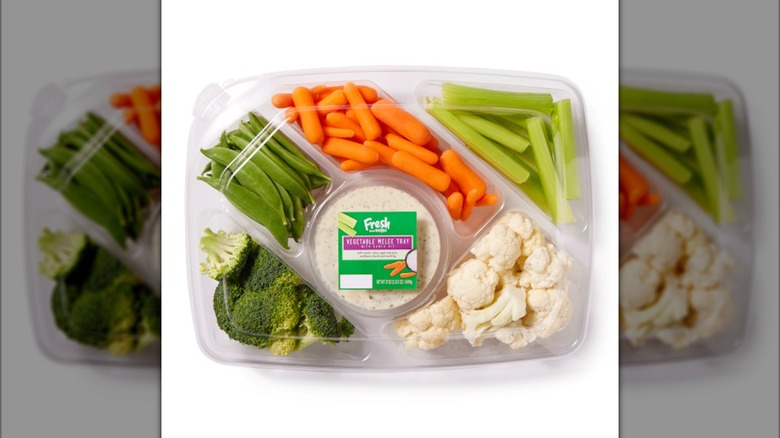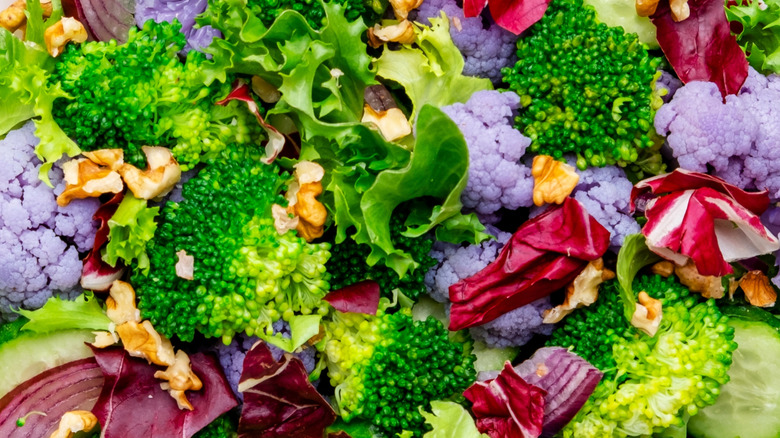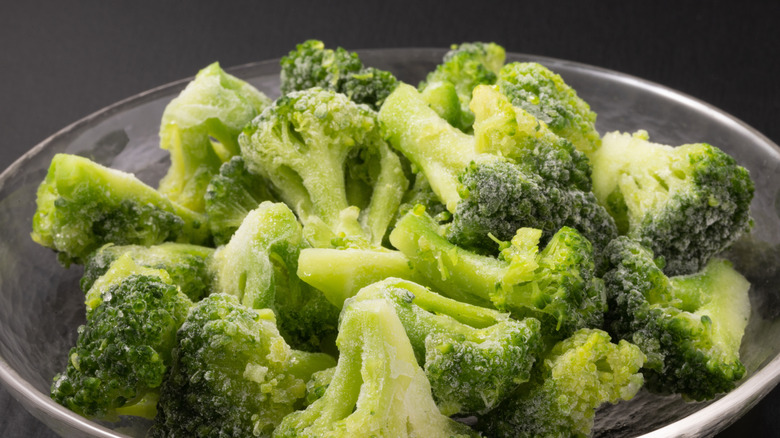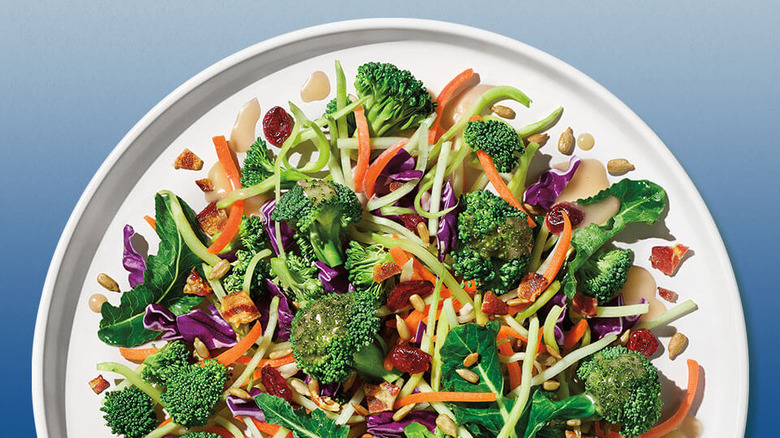The Biggest Broccoli Recalls In History
Broccoli is a versatile vegetable that can be used in everything from a delicious stir-fry to a creamy soup. This crunchy, crisp cruciferous veggie is jam-packed with vitamins, minerals, and other nutrients that make it a conscious addition to many meals. From adding it to your breakfast in an omelet to pairing it with your favorite protein as a side for dinner, the options for incorporating more broccoli into your diet truly are endless.
But unfortunately, this beloved type of produce is also susceptible to contamination with a bacteria that causes food-borne illness: Listeria monocytogenes. Over the years, exposure to this nasty bug has polluted multiple different broccoli products, resulting in everything from small, voluntary recalls to country-wide Class I recalls initiated by the U.S. Food and Drug Administration (FDA).
We take a look at some of the biggest broccoli recalls in history and discover what steps were taken to prevent any disastrous outcomes as a result of the contamination.
Braga Fresh Marketside Broccoli Florets (2024-2025)
In late December 2024, Braga Fresh — a California-based shipper and retailer of fresh veggies and salads — issued a precautionary advisory for their Marketside Broccoli Florets. The advisory was for just one production lot of the washed and ready-to-eat packaged broccoli, and only for packages with a "best if used by date" of December 10, 2024.
Braga Fresh issued the advisory after the company learned the broccoli had been potentially contaminated with Listeria monocytogenes. This bacteria can cause a myriad of symptoms ranging from fever and aches to intestinal upset. Contaminated packages potentially tainted by the bacteria were sold at Walmart locations in 20 states across the country, including Oregon, Washington, and California.
After the initial precautionary advisory was issued, the Food and Drug Administration issued an official recall in December 2024, and then took it a step further by upgrading the recall to a Class 1 in January 2025. This type of recall signifies that there is "a reasonable probability that the use of, or exposure to, a violative product will cause serious adverse health consequences or death." Though no illnesses had been reported as of early February 2025, consumers were advised to immediately discard or return any potentially contaminated broccoli to avoid extreme consequences.
Trader Joe's Unexpected Broccoli Cheddar Soup (2023)
Trader Joe's is beloved by its dedicated shoppers for its delicious ready-made meals that are fast, easy, and nutritious. But one of these fan-favorite products posed a potential health risk to consumers in the summer of 2023 (and was only one of several recalls on TJ's cult favorites).
The grocery chain issued a voluntary recall of its Unexpected Broccoli Cheddar Soup on July 27, 2023, after one of its suppliers — Winter Gardens Quality Foods, Inc. — discovered the broccoli in the soup may contain insects. The voluntary recall affected 10,889 cases of soup with 12 of the 20-ounce containers per case; that's a whopping 130,668 containers.
The recall impacted Trader Joe's locations in seven states — Florida, Illinois, California, Texas, Washington, Pennsylvania, and Connecticut — and soup with use-by dates between July 18 and September 15, 2023.Though no one got sick from the contaminated soup, Trader Joe's recommended that all containers from the identified lots be discarded immediately to be on the safe side.
Conagra Brands Birds Eye Broccoli Tots (2022)
Imagine taking a bite of your favorite beloved broccoli tots, only to crunch down on small rocks or metal fragments. This unlikely scenario became a reality for two consumers in August 2022 when they discovered small rocks and metal fragments in their Birds Eye Broccoli Tots, leading to dental damage.
The company issued a recall of four lots of this delicious broccoli snack with a mix of best-by dates in August and November of the same year. After the voluntary recall, stores removed all of the potentially harmful 12-ounce packages from their shelves, and the FDA recommended consumers do the same.
Made from a mix of broccoli, cauliflower, potatoes, onions, and different spices and binders, it wasn't identified which ingredient specifically was the possible culprit in these frozen morsels. But given that the broccoli tots are no longer listed on the Birds Eye website and are out of stock at many online retailers, it seems that the recall may have had a lasting impact.
Stop & Shop Frozen Broccoli Cuts (2020)
In spring 2020, inspectors from the Connecticut Department of Consumer Protection raised the alarm after finding Listeria monocytogenes in Stop & Shop's Private Brand Frozen Broccoli Cuts.
This harmful bacteria leads to listerosis, a food-borne illness that leads to fever, chills, and headache. It's especially risky in pregnant people, the elderly, and those with weakened immune systems, making any potential contamination extremely high risk.
Though the contaminated bag was found in South Windsor, Connecticut, the brand recalled broccoli from over 400 stores across four states — New Jersey, New York, Connecticut, and Massachusetts. The grocery giant asked that all consumers toss or return any bags of broccoli with a sell-by date of March 15, 2020 to avoid any food-borne diseases. Luckily, no illnesses were ever reported.
The grocery giant is no stranger to recalls. After the broccoli recall, Stop & Shop was also subject to recalls on cooked shrimp in 2021, breaded chicken cutlets in July 2024, and frozen waffles later the same year.
Meijer Vegetable Trays (2019)
In late summer 2019, grocery chain Meijer announced a voluntary recall of two items: vegetable trays and broccoli used in their salad bars. The produce was potentially contaminated by the bacteria Listeria monocytogenes, known to cause sever gastrointestinal distress and nasty flu-like symptoms.
The vegetable tray recall impacted Meijer stores in six states across the midwest, and the salad bar broccoli recall was specifically for two stores in the Grand Rapids, Michigan region. Though no illnesses were reported, consumers were urged to return or throw out any items with sell-by dates in a specific date range from September to November 2019.
Several other recalls have also plagued the grocery chain over the years. This broccoli recall in 2019 was close on the heels of a similar Meijer fresh vegetable recall in fall 2017. The previous recall impacted not only the vegetable trays but also a range of produce including broccoli, cauliflower, squash, asparagus, and brussel sprouts.
Butterfield Foods Broccoli Salad Kit (2016)
In June 2016, Butterfield Foods was alerted to a major problem: the sunflower seeds used in their broccoli salad kit dressing was possibly contaminated with Listeria monocytogenes. The resulting recall impacted nearly 16,000 pounds of their broccoli salad kits from various dates between November of 2015 and May of 2016. No illnesses as a result of the contamination, however, were ever confirmed.
Based in Indiana, this private-label food production company makes a range of products that are then distributed to restaurants, grocery chains, and convenience stores. And despite their commitment to quality, they were also subject to a massive recall on nearly 300,000 pounds of barbecue beef, pork and chicken products in 2011 due to the possible presence of an unstated soy allergen prior to the broccoli salad kit recall in 2016. These two incidents, however, seem to be the only recalls on Butterfield Foods' otherwise spotless record.
Wylwood Frozen Fresh Broccoli Cuts (2016)
1,800 cases of Wylwood Frozen Fresh Broccoli Cuts — produced by Congelados Co. — were recalled in spring 2016 due to a common contamination culprit: Listeria monocytogenes. Responsible for a range of symptoms from flu-like ailments to intestinal distress, Listeria can even survive refrigeration and freezing. Because it's so adaptable, no food — even brozen broccoli — is safe once exposed to this pesky bacteria.
The Ohio Department of Agriculture identified the bacteria in a routine test, causing the voluntary recall to be set in motion. Because the frozen broccoli was shipped across the country to nearly a dozen states, including Ohio, Georgia, North Carolina, and Indiana, it resulted in a widespread recall of the tainted veggie. Consumers were advised to toss any one-pound bags featuring a single UPC code in the trash to avoid potential exposure to unwanted food-borne illness. Luckily, no illnesses were identified in connection to this particular product.
Taylor Farms Inc. Broccoli Salad Kits (2013)
In fall 2013, a different broccoli salad kit was the source of possible contamination. This Taylor Farms product included salad dressing that may have been compromised with Listeria monocytogenes, a bacteria that can make even healthy people extremely ill — and is especially dangerous for those who are immunocompromised.
Based in both Texas and Maryland, Taylor Farms had shipped the salad kits across the country to Maryland, Massachusetts, New Jersey, New York, Pennsylvania, Texas, and Virginia, recalling bags of the salad kit from all seven states. While making a broccoli salad with a pre-prepared kit is a fast and easy option, it's also equally delicious when made from scratch if you're looking for a way to vet all of the ingredients before consuming
Though no illnesses were linked to this case of contamination, Taylor Farms has unfortunately been the subject of multiple recalls in the years since. In 2018, the brand recalled a pork carnitas bowl featuring tomatillos possibly exposed to both salmonella and Listeria monocytogenes. In 2024, they recalled another salad kit; this time, nearly 20,000 pounds of apple walnut chicken salad bowls were flagged because of an undeclared wheat allergen.
